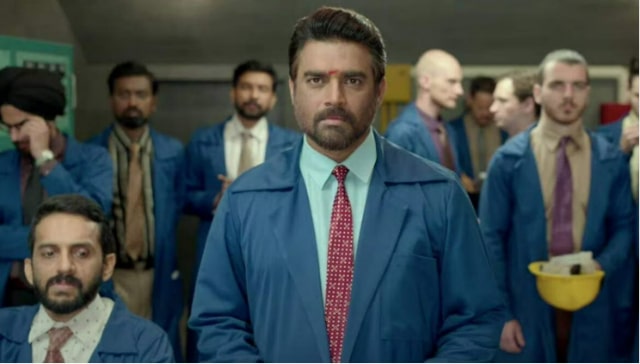(Note: This is a review of the Hindi version of Rocketry. The film was simultaneously made in Tamil, Hindi and English with some differences in the cast.) Language: Hindi The
true story of rocket scientist
S. Nambi Narayanan is as sensational or perhaps more so than any fictional tragedy that could emerge from a film scriptwriter’s imagination. Narayanan was a leading light in the
Indian Space Research Organisation (ISRO) when he was accused of espionage in 1994, only for the charges to be dismissed by the CBI in 1996 and subsequently, by the Supreme Court. The loss of reputation, the social ostracisation, the ruinous effect of the allegations and investigation on his peace of mind, his career and his family have been calling out to be made into a film for over two decades. The timeline of events is not as easily decipherable in
_Rocketry: The Nambi Effect_ as it is in the previous paragraph. What is obvious from the film, however, is that even extraordinary realities can be reduced to ordinary cinema when subjected to average treatment.
With everyone else diminished to a mere sidelight in the narrative, Madhavan’s envisioning of Narayanan comes across as made-for-cinema rather than real.
The film portrays the gentleman not just as a genius, but also as a
James Bond -like figure masterminding a race across snow-laden landscapes in foreign climes to sneak precious equipment into his beloved India, the envy of his male colleagues for his magnetic personality that attracts white women (a standard Indian cis-het male fantasy) and the very personification of deshbhakti. Maybe he genuinely is/was all the above, but Rocketry does not make any of these characteristics convincing. Bond’s shenanigans are fun because the series does not pretend to be true-to-life. Rocketry seems not to know whether to pitch itself as realistic or larger-than-life. The film’s Hollywood-style patriotism further robs it of credibility. Rocketry’s deshbhakti is not the kind currently in vogue in Bollywood (possibly because it is not a Bollywood film, but has emerged from the Tamil film industry): it is not hate-filled, anti-minority or intentionally divisive. Instead, its idea of love for the country is the kind that lazy writers of American mainstream cinema have favoured for decades: a laughable worldview according to which the US is the centre of the universe and all human daring. In Rocketry’s case, white people of the Western hemisphere are easily outwitted, deceived (the French particularly so) or charmed by brainy, enchanting Indians as exemplified by Narayanan himself. The pedestalisation of the lead mirrors the depiction of India here: ISRO revolves around Narayanan in The Gospel According to Rocketry, such that at one point he negotiates a deal with a European space programme without his boss’ or the government’s knowledge, and he is praised by the said boss for doing so. This scene and several others are too silly to be excused with creative licence as their justification. To be fair, the format does make it clear that this is Narayanan’s own account of himself. Rocketry is set up as an interview of Narayanan being conducted before a live audience by the actor
Shah Rukh Khan (a role played by
Suriya in the Tamil version). The film goes back and forth between the Q&A and flashbacks to Narayanan’s journey, beginning with him in his youth winning a scholarship to Princeton University, acing his studies, opting to return to India and to ISRO’s tight budgets instead of accepting a high-paying job in the richly funded NASA. Rocketry tries to understate its political leanings. That it has leanings is evident, nevertheless, since it extends from the 1960s to the 2010s, skips any mention of past Prime Ministers, yet features a long passage overlaid with the present Prime Minister’s voice towards the end.
This review was first published when Rocketry: The Nambi Effect was released in theatres on July 1, 2022. The film is now streaming on Amazon Prime Video.
Anna M.M. Vetticad is an award-winning journalist and author of The Adventures of an Intrepid Film Critic. She specialises in the intersection of cinema with feminist and other socio-political concerns. Twitter: @annavetticad, Instagram: @annammvetticad, Facebook: AnnaMMVetticadOfficial Read all the Latest News , Trending News , Cricket News , Bollywood News , India News and Entertainment News here. Follow us on Facebook, Twitter and Instagram.


)
)
)
)
)
)
)
)
)



